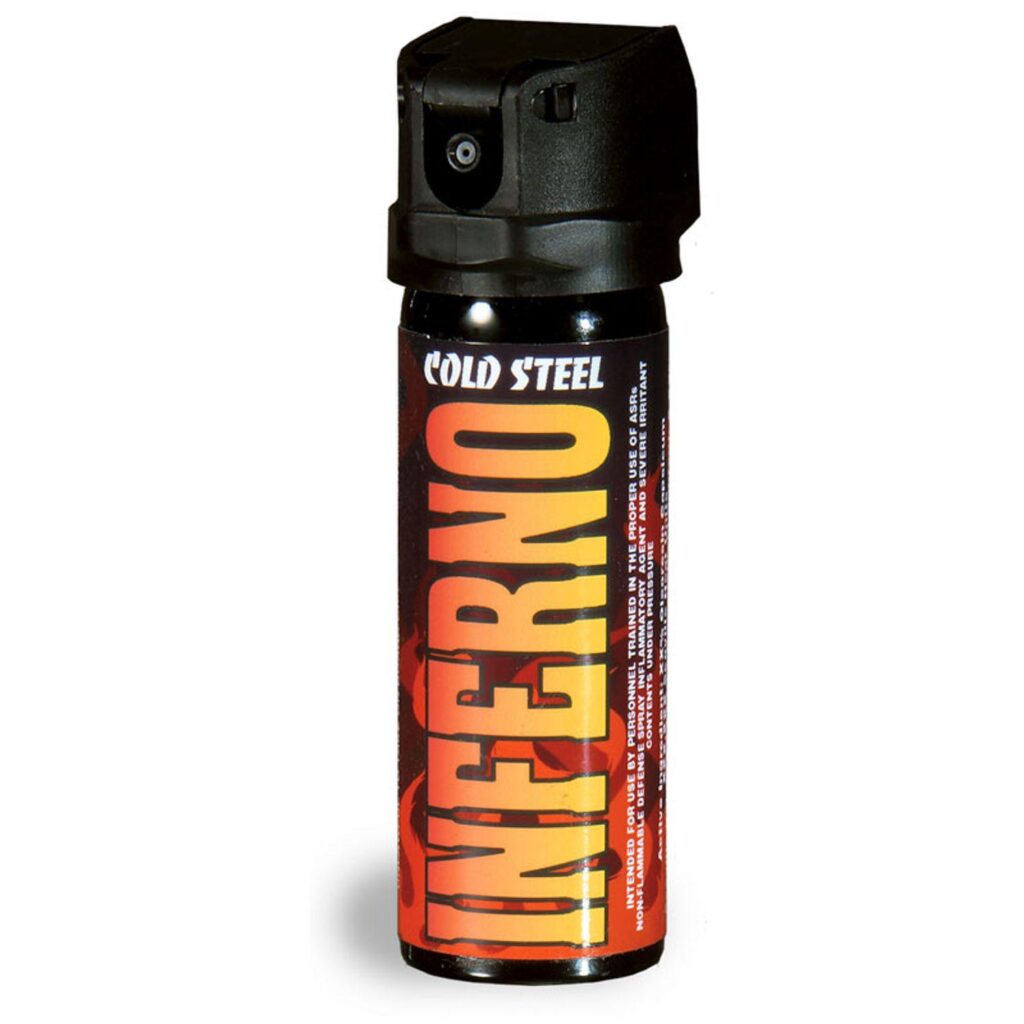Table of Contents
- Understanding the Impact of Intoxication on Pepper Spray Effectiveness
- Scientific Insights into How Alcohol Alters Response to Pepper Spray
- Safety Considerations When Using Pepper Spray on Intoxicated Individuals
- Best Practices and Alternative Self-Defense Strategies for Handling Intoxicated Aggressors
- Concluding Remarks
Understanding the Impact of Intoxication on Pepper Spray Effectiveness
When it comes to the effectiveness of pepper spray on intoxicated individuals, several physiological and behavioral factors come into play. Intoxication, particularly from alcohol or drugs, can alter a person’s pain perception and reaction time. This means that while the active compounds in pepper spray-primarily capsaicin-will still cause irritation to the eyes, skin, and respiratory system, the impaired sensory processing of an intoxicated person may reduce the immediate deterrent effect. Many intoxicated individuals may not respond with the typical aversive behaviors such as blinking, gasping, or retreating, making it more challenging to neutralize a threat quickly.
Additionally, intoxication can influence muscle coordination and cognitive function, often leading to slower or unpredictable responses. The following factors can impact the spray’s effectiveness:
- Reduced Sensory Awareness: Intoxicated individuals may not register the intensity of pain or discomfort as sharply as sober individuals.
- Impaired Motor Skills: Delayed or uncoordinated physical reactions may prevent the person from withdrawing from the spray or stopping aggressive behavior.
- Heightened Aggression: Some substances can increase aggression or agitation, which complicates de-escalation efforts even when exposed to irritants.
While pepper spray remains a valuable tool for self-defense and law enforcement, understanding these nuances is critical. It emphasizes the need for additional caution and tactics when dealing with an intoxicated assailant to ensure both safety and effectiveness.
Scientific Insights into How Alcohol Alters Response to Pepper Spray
When alcohol is consumed, it exerts its effects by depressing the central nervous system, leading to impaired cognitive and motor functions. This alteration significantly impacts the body’s innate defense mechanisms, including how one responds to irritating agents like pepper spray. Scientific studies reveal that intoxicated individuals may experience a dulled sensory perception, meaning the intense burning and inflammation typically caused by capsaicin-the active compound in pepper spray-might be perceived as less severe. This diminished reaction can delay the incapacitating effects essential for pepper spray’s deterrent purpose, potentially compromising its effectiveness in real-world scenarios involving intoxicated subjects.
Moreover, alcohol-induced vasodilation and increased blood flow can exacerbate the systemic absorption of capsaicin, paradoxically intensifying discomfort internally while reducing immediate surface pain responses. Understanding this complex interplay helps explain why some users of pepper spray report inconsistent results when targets are under the influence. Key factors include:
- Lowered pain sensitivity: Intoxication can blunt the nervous system’s response.
- Altered inflammatory response: Alcohol affects how inflammation develops in exposed tissues.
- Delayed reaction times: Slowed motor functions may hinder rapid incapacitation.
- Psychological tolerance: An intoxicated mind may perceive pain and fear differently.
Safety Considerations When Using Pepper Spray on Intoxicated Individuals
When engaging with intoxicated individuals, extra caution is paramount. Their impaired judgment and delayed reaction times can lead to unpredictable responses, increasing the risk of escalation. It’s critical to assess the situation thoroughly before deploying pepper spray, ensuring that the level of threat justifies its use. Additionally, be aware that the effects of pepper spray might not be as immediate or effective, meaning repeated applications could be necessary, potentially raising safety concerns for both parties.
To mitigate potential risks, consider implementing these best practices:
- Maintain distance: Keep a safe range to avoid physical retaliation or accidental exposure.
- Use de-escalation techniques first: Verbal warnings and calming methods can help prevent the situation from escalating to physical confrontation.
- Be mindful of the environment: Avoid enclosed spaces to reduce the risk of affecting bystanders or yourself with lingering spray.
- Have backup ready: Calling for assistance or ensuring someone else is nearby can provide added safety and support.
Best Practices and Alternative Self-Defense Strategies for Handling Intoxicated Aggressors
When facing an intoxicated aggressor, relying solely on pepper spray may not always yield the desired outcome. Intoxication often dulls the senses and impairs an individual’s reaction to stimuli, including pain. This means that the effects of pepper spray might be less immediate or pronounced compared to when used on sober individuals. Therefore, integrating alternative self-defense strategies can greatly enhance your safety and control during such encounters. Approaching with caution, maintaining distance, and staying aware of your surroundings are critical first steps.
Consider incorporating these best practices to increase your chances of effectively managing the situation:
- Verbal de-escalation: Calmly communicate to reduce aggression and confusion.
- Maintaining safe distance: Keep out of striking range to protect yourself from unpredictable behavior.
- Using environmental awareness: Position yourself near exits or other people for backup.
- Physical disengagement techniques: Learn simple breakaway moves that enable escape without prolonged confrontation.
- Carrying multiple tools: Supplement pepper spray with noise alarms or a personal flashlight for added deterrence.
By diversifying your approach and preparing for the nuanced challenges posed by intoxicated aggressors, you enhance your overall personal safety strategy beyond the limitations of any single defense tool.
Concluding Remarks
In conclusion, while pepper spray is a widely used self-defense tool proven effective on sober individuals, its impact on intoxicated persons can be less predictable. Alcohol and other substances may alter pain perception, reaction time, and overall responsiveness, potentially diminishing the spray’s immediate deterrent effect. However, pepper spray remains a valuable option for personal safety when used responsibly and with awareness of its limitations. As always, understanding the context and exercising caution are key when dealing with any situation involving intoxicated individuals. Stay informed, stay prepared, and prioritize safety above all.Check Our Other Blogs
- StunGun – Your Trusted Source for Stun Guns, Laws, and Self-Defense Tips
- PepperSprayLaws – Your Trusted Resource for Pepper Spray Information
- StunGunLaws – Your Trusted Guide to Stun Gun Legality and Safety




